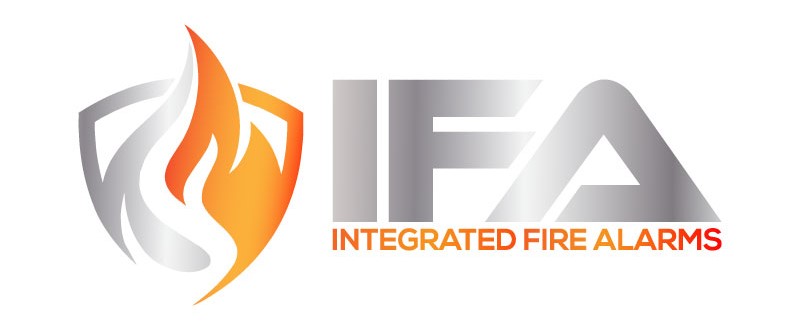In today’s world, the safety and security of people and property are of paramount importance. One crucial aspect of this is fire safety, and a critical component of fire safety is having an efficient and reliable fire alarm monitoring system in place. This article aims to provide a comprehensive guide to fire alarm monitoring service providers, covering various aspects such as types of fire alarm systems, their advantages, the role of monitoring service providers, and tips for selecting the right provider.
Types of Fire Alarm Systems
There are various types of fire alarm systems available in the market, and selecting the right one depends on the specific requirements of a property. Some of the commonly used fire alarm systems include:
1. Photoelectric Smoke Detectors
These detectors operate on light and are highly effective in responding to slow smoldering fires. They are less sensitive to cooking nuisance alarms and are well-suited for large open spaces where smoke does not dissipate rapidly.
2. Ionization Smoke Detectors
Ionization detectors work on combustion particles and are effective in detecting burning flame fires. They are also less sensitive to nuisance alarms from bathroom steam and are ideal for large open spaces.
3. Thermal (Heat) Detectors
These detectors are designed to trigger an alarm when a significant change in temperature occurs due to a fire. They are best suited for smaller confined spaces such as floor and ceiling voids and are commonly used in areas like kitchens, where smoke alarms may cause spurious alarms.
4. Multi-Criteria Detectors
Multi-criteria detectors activate on either smoke and/or heat and are used for specialized applications. They are not commonly used but can be valuable in specific scenarios.
Advantages of Fire Alarm Systems
Fire alarm systems provide several benefits to property owners, some of which include:
- Early detection of fires, allowing occupants to evacuate the premises and minimize damage.
- Compliance with fire safety regulations and building codes.
- Reduction in property insurance premiums.
- Enhanced safety and peace of mind for occupants.
The Role of Fire Alarm Monitoring Service Providers
Fire alarm monitoring service providers play a critical role in ensuring the effectiveness of a fire alarm system. Some of their key responsibilities include:
1. System Design and Installation
Fire alarm monitoring service providers are responsible for designing and installing a fire alarm system that meets the specific requirements of a property. They ensure that the system complies with relevant legislation and standards, such as the Building Code of Australia (BCA) and Australian Standards (AS).
2. Routine Maintenance and Inspections
Regular maintenance and inspections are essential for maintaining the effectiveness and reliability of a fire alarm system. Service providers are responsible for conducting routine maintenance and inspections as per the guidelines provided by relevant standards like AS1851.8 and AS1851.6.
3. Emergency Response and Support
In case of an emergency, fire alarm monitoring service providers offer 24/7 support to ensure a prompt response to any alarms triggered. They work closely with emergency services to facilitate a quick and efficient response to any fire incidents.
4. System Upgrades and Modifications
As technology advances and new fire safety regulations are introduced, service providers are responsible for upgrading and modifying fire alarm systems to ensure continued compliance and effectiveness.
Tips for Selecting the Right Fire Alarm Monitoring Service Provider
Choosing the right fire alarm monitoring service provider is crucial for ensuring the safety and security of a property. Here are some tips to help you make the right decision:
1. Evaluate Experience and Reputation
Select a provider with a proven track record of delivering quality services in fire alarm monitoring. Consider their experience in working with properties similar to yours and their reputation in the industry.
2. Check for Compliance with Relevant Standards
Ensure that the provider adheres to the relevant legislation, codes, and standards, such as the BCA and AS. This will ensure that your fire alarm system meets the necessary requirements and is effective in providing fire safety.
3. Assess their Service Offerings
Evaluate the range of services offered by the provider, including system design and installation, maintenance and inspections, emergency response, and system upgrades. A comprehensive service offering will ensure that all aspects of your fire alarm system are taken care of.
4. Compare Pricing and Value for Money
While cost should not be the sole determining factor, it is essential to consider the pricing of the services provided. Compare the costs of different providers and ensure that you are getting value for your money.
5. Seek Customer Reviews and Testimonials
Reach out to existing customers to get an idea of their satisfaction with the provider’s services. Customer reviews and testimonials can provide valuable insights into the quality of services offered, responsiveness, and professionalism of the provider.
In Conclusion
Fire alarm monitoring service providers play a crucial role in ensuring the safety and security of properties. By selecting the right provider and having a robust fire alarm system in place, property owners can ensure early detection of fires, compliance with fire safety regulations, and peace of mind for occupants.

